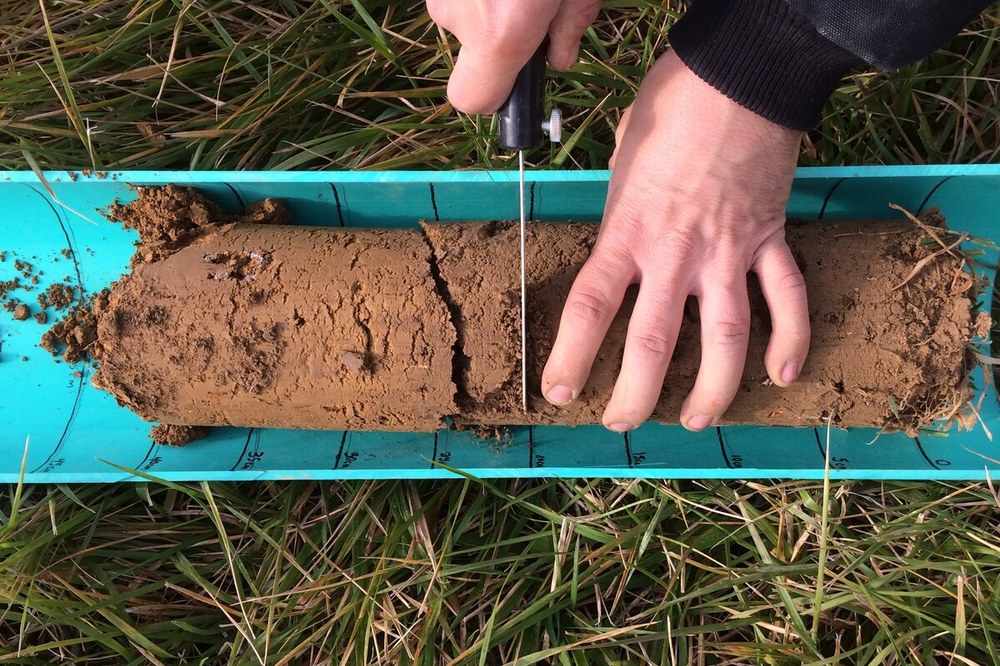Cover crop roots can help growers reap environmental and financial benefits.

Photo: Joseph Amsili
Problem
How can cover crops be enhanced to improve ecosystem services?
- Cover crops are used to increase the quantity of organic carbon returned to the soil between cash crops such as corn, to limit erosion, and to add soil nitrogen.
Findings
In a recent study as a part of a continuous experiment conducted since 2011, researchers focused on cover crop roots, known to be essential in increasing soil carbon levels. They evaluated cover crop treatments including monocultures of triticale, canola, and crimson clover as well as a five-species mixture dominated by those three species to learn about root-trait variation among species, and how that variation impacts mixture design.
- By measuring the ratio of root biomass to aboveground biomass, or the root-to-shoot ratio, and relating that to the amount of nitrogen in the plants, the team could determine how these parameters differed between cover crop treatments. They found that the mixtures increased total carbon input and promoted higher carbon inputs from corn crop residues.
Impact
This study improves understanding of the linkages between root traits and the ecosystem services that cover crops provide, giving clearer insight into how to design cover crop mixtures with complementary root traits that can deliver added boosts to cash crops that follow.
Research Credit
Team
- Joseph Amsili, Jason Kaye
Participating Department
Partner
Competitive Funding
- USDA NIFA (OREI)
Federal and State Appropriations
- USDA NIFA Hatch Project PEN04710, Accession #1020049
Emerging Discoveries
Published Research
Root traits of cover crops and carbon inputs in an organic grain rotation. Renewable Agriculture and Food Systems
-
Amsili, J. P., & Kaye, J. P. (2021). Root traits of cover crops and carbon inputs in an organic grain rotation. Renewable Agriculture and Food Systems, 36(2), 182-191. https://doi.org/10.1017/S1742170520000216
Office for Research and Graduate Education
Address
217 Agricultural Administration BuildingUniversity Park, PA 16802-2600
- Email agresearch@psu.edu
- Office 814-865-3136
Office for Research and Graduate Education
Address
217 Agricultural Administration BuildingUniversity Park, PA 16802-2600
- Email agresearch@psu.edu
- Office 814-865-3136



